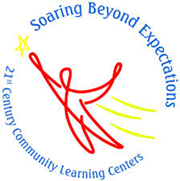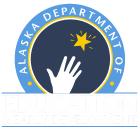- Cama-i, quyana tailuci!
- (Central Yup’ik)
- "Greetings, thank you for coming!"
21st Century Community Learning Centers
Overview
The purpose of the Nita M. Lowey Alaska 21st Century Community Learning Centers (21st CCLC) program is to provide competitive grants to organizations that are working in partnership within their community and schools to provide expanded learning and enrichment opportunities for children and their families outside of regular school hours. The program is designed to target funds to communities that have low achieving students and high rates of poverty but lack the resources to establish after school centers. Funding for Alaska’s 21st CCLC program is provided by federal funds from ESEA, Title IV, Part B.
Foundational Documents
Competitive Grant Opportunities
There are no competitive grant opportunities available at this time. DEED anticipates it will not offer another 21st CCLC grant competition until winter of the 24-25 school year; however, this plan is subject to change based upon factors such as increased or decreased federal funding.
For informational purposes, the most recent Request for Applications (from spring 2020) and its related documents are provided below:
- FY21 Alaska 21st CCLC Request for Applications due May 15, 2020 (word)
- 21st CCLC DEED School Data Sheet (Excel)
- Alaska 21st CCLC Evaluation Technical Assistance (MS Word)
- Meeting Alaska’s Education Challenge Together
- Sample Affirmation of Consultation and Agreement with Private School Officials (MS Word)
Renewability of Grants
Once an applicant wins a 21st CCLC grant award, they will receive an annual continuation award for up to a maximum of five years of funding, contingent upon good standing and continued federal funding, similar to most competitive grants.
In addition, Section 4204(j) of ESEA gives State Education Agencies (SEA) the unusual option of giving successful grantees a one-time non-competitive renewal of their award for an additional three to five years.
SEAs are not required to allow a “renewability” option, and notably, the Alaska Department of Education & Early Development’s policy is to only employ the renewability option sparingly, preferring to have previously successful grantees compete for additional funding awards along with all other applicants. However, DEED does occasionally use the renewability option to solve problems such as a decrease in funding, logistical issues, or a lack of applicant interest when a surplus of “easier” funds has been available.
When determining eligibility for renewal, DEED primarily considers progress on meeting grantee-set performance indicators, serving the proposed the number regular attendees, providing the proposed number of programming hours, and providing proposed academic and enrichment instructional activities.
External Organization Partner Pool
In order to increase the capacity of Alaska’s communities to offer high-quality 21st Century Community Learning Center (21st CCLC) applications and programs, the Every Student Succeeds Act (ESSA) requires the Alaska Department of Education & Early Development (DEED) to make available a list of potential Alaska non-profit “external organizations” that 21st CCLC applicants may be interested in partnering with when building a 21st CCLC out-of-school-time program. Community partnerships within 21st CCLC programs are strongly encouraged as they have the potential to increase program quality, variety, and sustainability. The term "partnerships" in this instance is used loosely and may involve for-pay contracted services, in-kind services, etc.
When DEED releases a competitive Request for Applications, it also solicits Alaska non-profits to submit an Alaska Nonprofit Organization Profile Form to be considered for inclusion in the Alaska 21st CCLC External Organization Partner Pool. This request to organizations is publicized through the DEED Info Exchange, through the Alaska Afterschool Network newsletter, and other communication channels, as appropriate. Additionally, Alaska non-profits are also welcome to submit or update an Organization Profile Form any time they wish.
A complete Organization Profile Form requires information including an organization’s experience providing out-of-school-time services; their unique Alaska Entity Number; current and good standing with the Alaska Department of Commerce, Community, and Economic Development; and at least 3 references. Upon review and acceptance, the organization and their profile form is included in the Alaska 21st CCLC External Organization Partner Pool, which is posted on the DEED website, and ongoing good standing is checked and updated bi-annually.
Statutes, Regulations, and Guidance
21st CCLC Federal Statute and Guidance
21st CCLC Federal Statute - ESEA, Title IV, Part B as amended by ESSA - see pg. 226-238 (pdf)
Relevant Federal Regulation and Guidance
Federal Family Educational Rights and Privacy Act (FERPA)
Federal Equal Treatment Regulations
DEED Fiscal Resources
Current State Grantees
Information on Current Grantees
Alaska 21st CCLC Grantees (docx)
Alaska 21st CCLC Fact Sheet FY19 (pdf)
Alaska 21st CCLC Statewide Evaluation Report FY19 (pdf)
Each 21st CCLC grantee is required to contract with an external evaluator to conduct a Local Evaluation of the program and issue a report annually. These annual local evaluation reports can be reviewed by any interested stakeholder by finding it on the program’s webpage or else contacting the program to request a copy.
Quick Links for Current Grantees
Resources for Afterschool
- 21st CCLC NTAC
Afterschool Alliance - Alaska Afterschool Network (AAN)
- Alaska Dept. of Fish and Game Educator's Page
- Alaska's Adopted Academic Standards
- Alaska's Adopted Employability Standards
- APICC Youth Employability Skills
- APS Award Checklist
- Assessing Youth Program Quality
- Building and Managing Quality Afterschool Programs
- CDC's Preventing Child Sexual Abuse Within Youth-Serving Organizations
- Click2Science
- DEED's USDA Child Nutrition Programs
- Foundations, Inc.
- Harvard Family Research Project – Afterschool Evaluation 101
- Lights On Afterschool
- Measuring Social and Emotional Learning: A Brief Guide
- NAA Healthy Eating and Physical Activity Standards
- NYSED List of Model Prevention Programs Supporting Academic Achievement
- SAMHSA's National Registry of Evidence-Based Programs and Practices
- SEL Assessment Toolkit
- The Fourth R
- Weikart Center
- What Works Clearinghouse
- Y4Y

Important Dates
2024 Alaska Out-of-School-Time Conference
Live in Fairbanks
November 20 – 22, 2024
Contact Us
21st CCLC Program Manager
Jessica Paris:
907-465-8716
